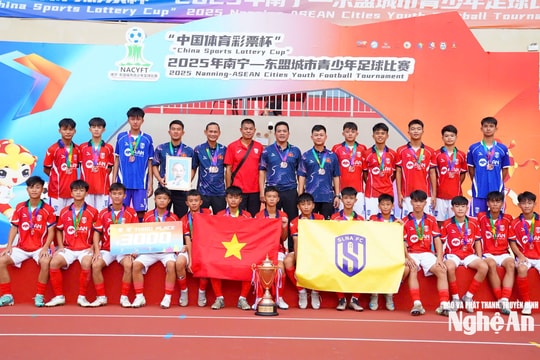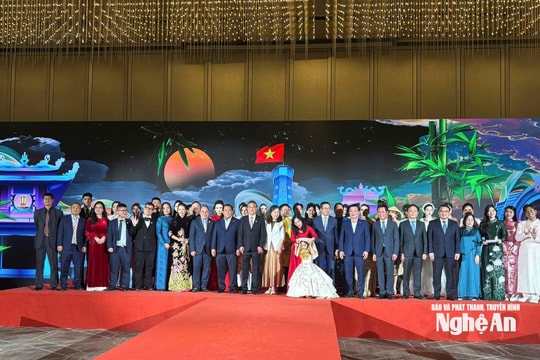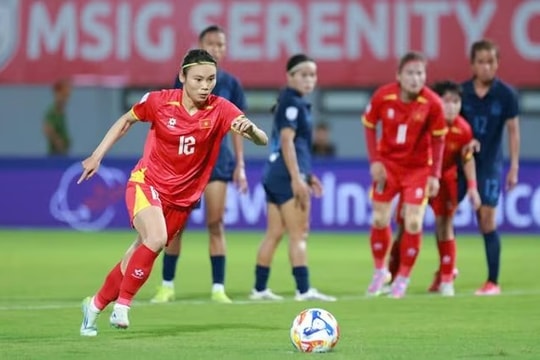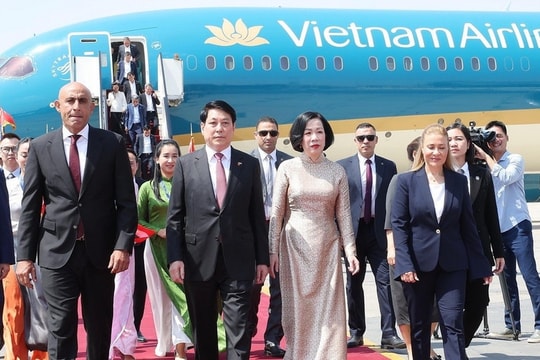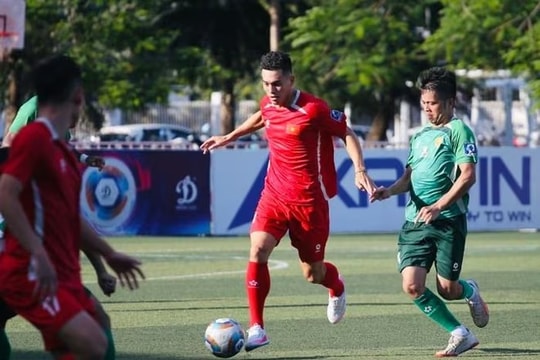ASEAN joint statement does not mention the 'cow tongue line' ruling
The Association of Southeast Asian Nations issued a joint statement today but did not mention China or the ruling from the Arbitral Tribunal on the "cow tongue line".
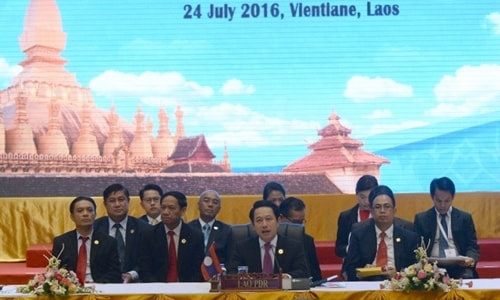 |
Lao Foreign Minister Saleumxay Kommasith (center) speaks at the plenary session of the ASEAN foreign ministers' meeting on July 24. Photo: AFP. |
In a joint statement, the 10 member states of the Association of Southeast Asian Nations (ASEAN) reiterated their "serious concerns" about "land reclamation and escalatory activities" and called for self-restraint in the South China Sea, AFP reported. ASEAN called for finding a peaceful solution to disputes in the South China Sea in accordance with international law, including the United Nations Convention on the Law of the Sea (UNCLOS).
"We are seriously concerned about recent and ongoing developments, taking note of the concerns expressed by some Foreign Ministers on land reclamations and escalating activities in the area, which have eroded trust and confidence, increased tensions and may undermine peace, security and stability in the region," the joint statement said.
ASEAN foreign ministers, gathered in the Lao capital Vientiane for a summit, spent days discussing how to respond to the ruling from the Permanent Court of Arbitration on the "nine-dash line". The Arbitration Court said that China has no legal basis to claim historic rights to resources within the "nine-dash line" that it unilaterally outlined, covering most of the East Sea.
Cambodia is said to not want China criticized. Meanwhile, most ASEAN members want the association to maintain pressure on China's illegal island-building campaign in the South China Sea.
However, under ASEAN rules, decisions must be made by consensus, meaning any country has the right to veto proposals. This time, Cambodia used its veto power, according to AP. In 2012, Cambodia also blocked ASEAN from mentioning the South China Sea dispute, causing the first foreign ministers' meeting to fail to issue a joint statement.
The joint statement was issued after last-minute talks managed to break the deadlock.
“We just want to avoid the risk of collapse,” said an ASEAN diplomat, referring to the 2012 incident.“It was a compromise statement. And in a compromise statement, someone has to give way,” another diplomat said.
According to VNE
| RELATED NEWS |
|---|

